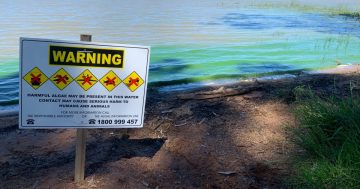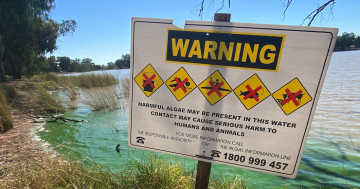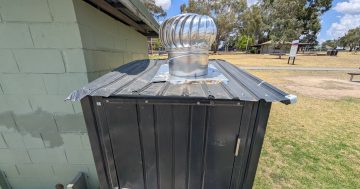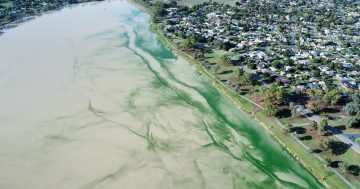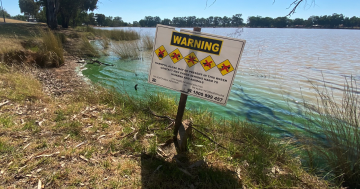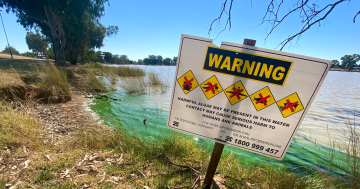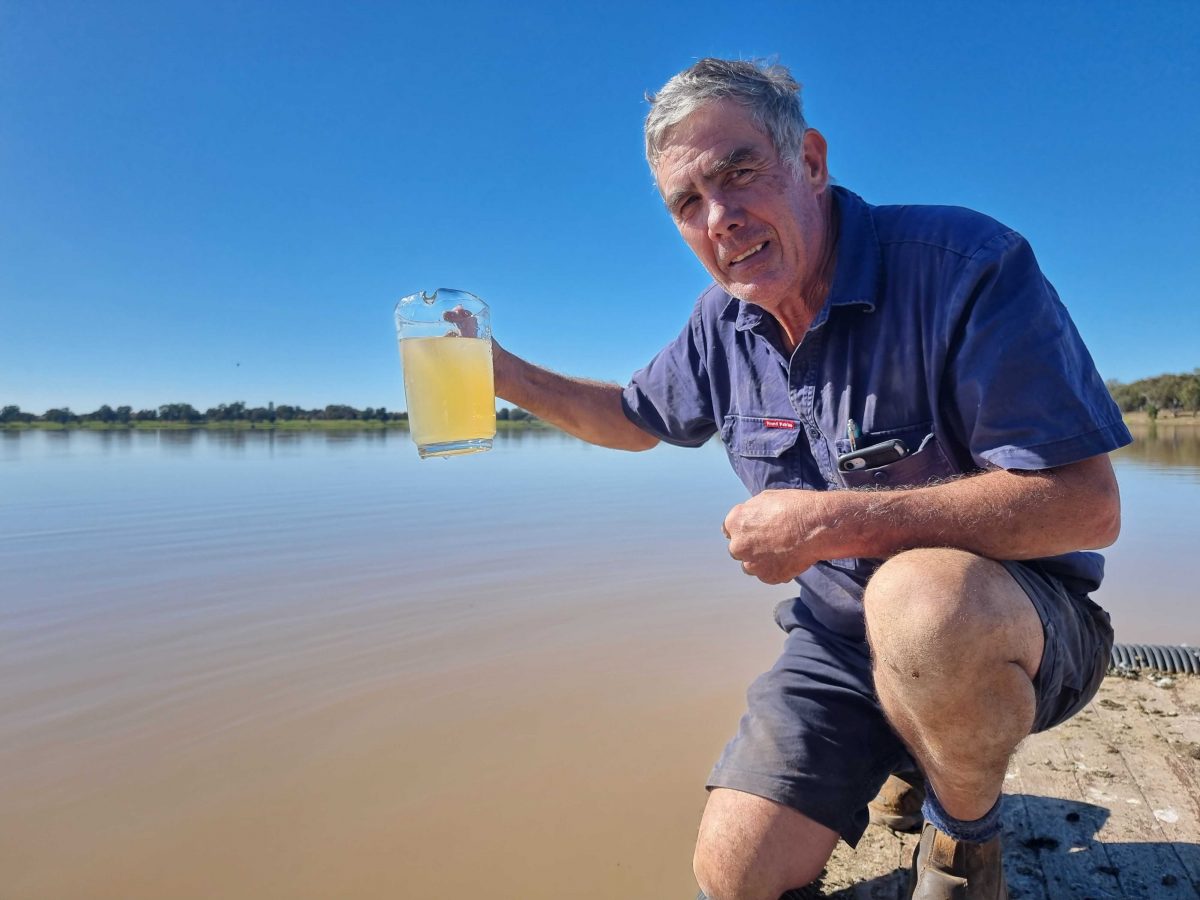
Cr Mick Henderson at Lake Albert, where Wagga Council is considering a new way to solve the blue-green algae problem. Photo: Shri Gayathirie Rajen.
Wagga Wagga City Council has endorsed a report that could see the adoption of an alternative method to treating the ongoing blue-green algae outbreaks at Lake Albert.
The new treatment would be a permanent solution to the ongoing issue, but the council has recognised that the future operating costs of the treatment and the new pipeline project will likely exceed $1 million annually.
The council will return in February to determine whether the 2024/25 budget can support the costs of the new treatment.
The new trial has been undertaken at the University of Newcastle and involves inserting into the water an enzyme that prevents algae build-up.
Wagga Council general manager Peter Thompson said the company that made the enzyme was confident the treatment would be a more reliable solution than the current method.
“They’ve never done a water body as large as the lake. So to some degree, it’s still a trial,” Mr Thompson said.
“However, everyone is hopeful that this may be a long-term solution to preventing algal blooms in the lake. Rather than just pressing the green button and undertaking the outdoor treatment, we need to incorporate it into our budgets and understand how funding that every year works.”
Current treatment of the lake involves pontoons that emit a sonar-like frequency that is effective at dispersing smaller outbreaks but this has proven incapable of preventing larger algal brooms.
“The pontoons are not a long-term solution,” Mr Thompson said.
“Council may decide to start the process of introducing the enzyme from February once they have allocated the funds.
“If council do decide to do it later in 2024, the downside to that is that from our understanding, the new technology works better when no algae exists in the water.
“We wouldn’t be able to start the process until after summer, when the algae is no longer present. There is no answer yet as to whether the new treatment will even happen. That will all be made much clearer come February next year once council has made its decision.”
Mr Thompson said there had been a strong voice from the Lake Albert community to apply a long-term algae treatment, and the number of expressions of concern as well as the potential environmental factors would be considered before a decision was made.







